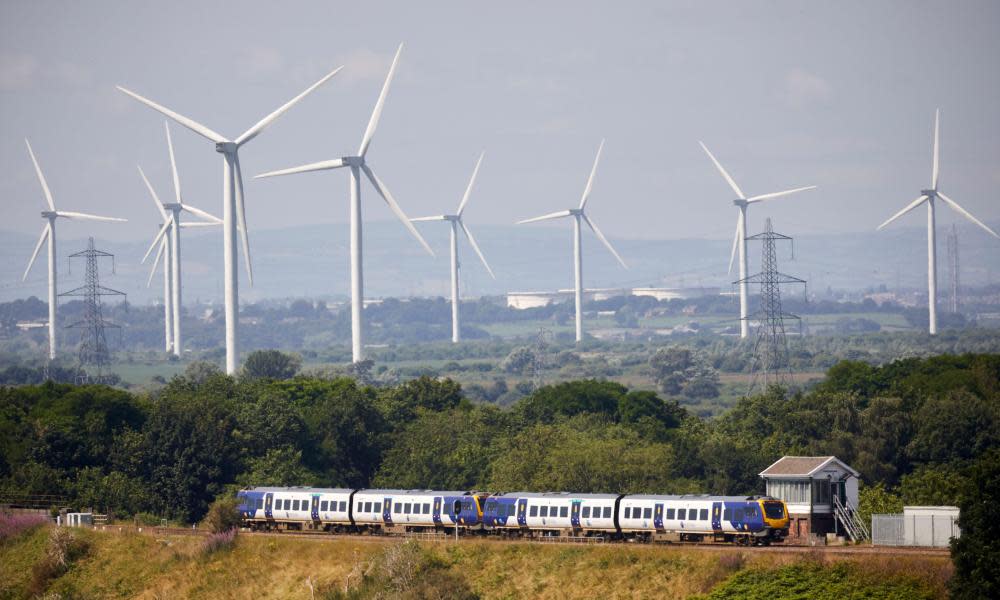Boris Johnson’s climate adviser backs Labour’s energy security strategy

Boris Johnson’s former climate adviser has backed Labour’s plans to make Britain energy secure by 2030, the Guardian has learned.
Sam Richards, who worked as the energy and climate adviser in No 10, believes the only way Britain can wean itself off expensive foreign gas is to “commit to deliver necessary planning reform” and lift onshore wind bans.
His endorsement comes after Rishi Sunak signalled the end of a moratorium on new onshore wind projects after facing a huge Conservative rebellion. Instead, he launched a consultation on the moratorium that is due to end this week.
Keir Starmer has already promised to rip up planning restrictions that block the expansion of onshore windfarms, and says he is ready to “persuade some communities to get on board”.
Wholly supporting Labour’s proposals, Richards, who is CEO of the campaign group Britain Remade, said that “without committing to planning reform, any plan, no matter how ambitious, will fail to deliver”.
He added: “To go from being a net importer to a net exporter of electricity in less than seven years is going to be a mammoth challenge. We’ll need to lift the ban on onshore wind and dramatically cut the time it takes to build new offshore wind and solar.
“We’ll also need to see small modular reactors rolled out at pace, alongside new targets for long-duration energy storage and major upgrades to grid infrastructure. All of this will only happen if we overhaul our outdated and sluggish planning system.”
It follows the release of a report by Britain Remade which has found that households across the country could benefit from a clean energy dividend on their energy bills, saving up to £1,400 a year, if the government adopted some of its proposed measures to become energy secure by 2030.
The pro-growth campaign group argues that if international gas prices were to spike by 400% again, electricity bills would only rise by 20%, not the 235% they rose by between winter 2021-22 and January 2023. Assuming that electricity bills returned to 2019 levels, this would mean another historic rise in gas prices would only lead to a £10 a month increase in electricity bills for the average household.
By shifting to clean energy and speeding up its delivery, households would enjoy an annual clean energy dividend of up to £1,400.
As part of 25 recommendations set out in its Powerbook report, Britain Remade suggests the government automatically grants planning permission to all upgrades needed at existing renewable sites, in order to get as much renewable energy from them as soon as possible.
The pro-growth campaign group also suggests amending the Planning Act 2008 so developers no longer have to seek consents from multiple agencies for environmental permits.
The national planning policy framework will be updated to reflect the outcome of Sunak’s windfarm moratorium consultation by the end of April 2023.
Ed Miliband, the shadow climate secretary, said: “This is exactly the kind of ambition we need to drive towards clean power by 2030. I look forward to building the broadest coalition to make it happen.”
Greg Jackson, CEO of Octopus Energy, said the proposals would “bring down costs and deliver good green growth – a win-win for all”.

 Yahoo News
Yahoo News 
